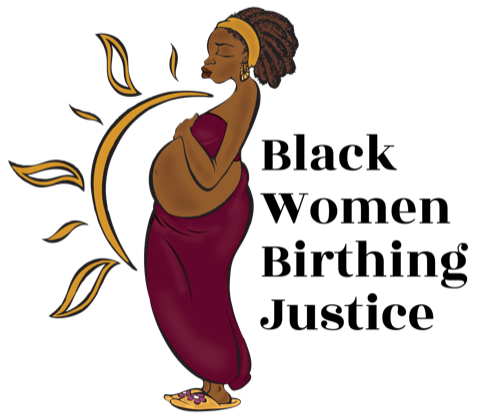Mothering While Black
When my partner and I began the process for becoming parents through adoption, I was focused on my journey, and the joy of welcoming a new little person into our family. We were quickly bombarded with a narrative about the journey of our child’s first parents; adoption is a choice, it is an act of love, and the strongest thing a mother could ever do.
I wanted to believe all of this, because, everyone wins! The child has a new family, the first parents get a new start, and the adoptive parent(s) are now parents! What is missing from this narrative is an analysis of why placements really happen. Discussions about the unrelenting, and often invisible, pressures that force families to make this choice. Black women, just like me, are losing their babies and it’s because of both economics and the color of their skin. Black mothers are repeatedly, and systemically, denied access to supports that could keep their families together.
Many adoptive parents look for differences between themselves and their child’s birth parents. We sometimes relegate life’s outcomes to personal choice and decision making. This protects us from facing a harsh reality, that it could have been us! There is a fine line that separates us. The truth is, it’s really just a coin toss. Us, on one end of the adoption spectrum, and Birth families on the other. When I look at my children, I can’t imagine a world in which I do not get to be their mom. A world in which I wouldn’t get to hold them tight. Tuck them in at night. Wipe their tears, root them on, or stand up for their rights. Yet I know their first parents live with that reality, every day.
As adoptive parents, we can’t just sit with the knowledge that we are so intimately engaged with a system that actively targets Black families. Where do we start? We can start by moving ourselves away from the idea that our choices protect us. By living in this narrative, we ignore the existence of systematic oppression. We lay all of the responsibility on a people who have been under fire for centuries. We can start by listening and hearing what supports are needed. What options could have been offered? What conversations should have happened? We must be clear, however, that listening, and compassion are not enough. We must fight for the changes that are needed. We must interrogate our own access to privilege. Align ourselves with those who do not experience the same benefits. We must actively challenge the narrative that narrowly defines birth parents. Within our family, we can talk about injustice. Situations in the world that are so divisive that women are being stripped of their right to parent their own children. We must ensure that there is real assistance in place and always available to help families navigate the hard times.
In general, adoptive parents are extended a great deal of grace, trust, and respect. As an adoptive mom, I experience the class privilege afforded to those parenting through adoption. As a Black mom, I experience the racialized oppression of “mothering while Black.” I wonder what would happen if all women were treated with care and compassion that’s afforded those of us who are parenting through adoption? If all women were treated as the owners of their own bodies and as experts in the care of their children, would adoption even exist? Would adoption be different?
For many adoptive parents asking hard questions about adoption forces us to imagine what it would mean if our children were not our children. Remember, this is only a small window into the pain a birth family experiences. Remember that being scared to ask the hard questions doesn’t make those questions go away. Nor are they any less vital. Our fear, does nothing. It does not absolve us from grappling with the answers. We must remind ourselves that we are raising children that one day may have children. Those babies deserve a world which has the family supports, and options necessary to make the hard choices, which leaves all of us all in a position to thrive.
Malaika Parker directs the Adoptive Parents of Color Collaborative through Pact, an adoption alliance. Malaika, has over 20 years experience working in the field of human and racial justice creating new pathways for engagement for disproportionately underserved communities. Malaika has worked to support adoptive families of color, just like her own, for over 10 years.

